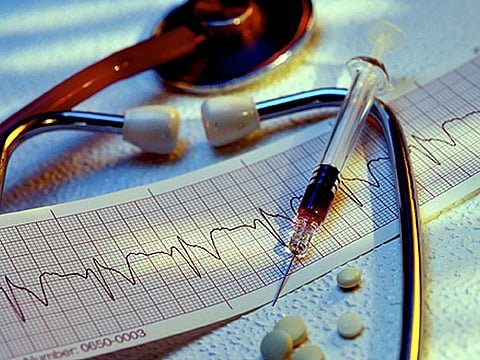THURSDAY, Aug. 31, 2017 (HealthDay News) -- People with no calcium buildup in their arteries seem to have a significantly lower risk of heart attack and stroke, a new study finds.
Calcium collects in the arteries after plaque builds up and hardens over time, the study authors explained.
For the study, researchers looked at nearly 6,200 people, aged 45 to 84, and found that those whose arteries were free of calcium deposits had a less than 3 percent chance of heart attack or stroke over the next decade.
That's well below the 7.5 percent heart risk level used as a guideline to begin treatment with cholesterol-lowering statin drugs, the researchers noted.
The study finding held true even among people who had other risk factors, such as diabetes, high blood pressure or high levels of bad cholesterol.
About half of the study participants showed no calcium deposits in their arteries.
"The event rates when coronary calcium is absent are low. Our findings suggest that individuals with no calcium buildup in their blood vessels may not have to take statins despite the presence of other risk factors that cause coronary disease," said study author Dr. Parag Joshi. He is a preventive cardiologist and assistant professor of internal medicine at UT Southwestern in Dallas.
The findings suggest that a CT scan for calcium in arteries may be something doctors and patients should discuss, according to Joshi.
"A CT scan is a test that is easily done, costs about 100 bucks in most major cities, and can give a lot more information about the patient's 10-year risk," Joshi said in a university news release.
However, the researchers added, there may be other reasons statins are recommended by a doctor. For example, it might be advisable to start statin treatment before there is evidence of calcium buildup if a person has a family history of cardiovascular problems, Joshi said.
The study was published as a letter in the August issue of the Journal of the American College of Cardiology: Cardiovascular Imaging.
More information
The U.S Centers for Disease Control and Prevention has more on heart disease prevention.


